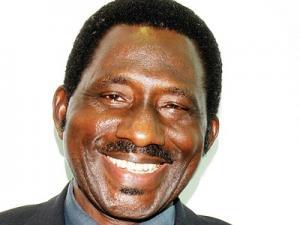NATCOMS urges NCC to adopt subscriber’s compensation policy

Mr Adeolu Ogunbanjo, the National President, National Association of Telecom Subscribers (NATCOMS) has made an inroad into how telecom operators short-change subscribers in the country, and urged the Nigerian Communications Commission (NCC) to adopt a subscriber’s compensation policy, including sanction to address the trend.
Ogunbanjo stated the Association position in a recent statement which he endorsed and made available to Daily Times, adding that in spite of the sector’s growth and its attendant benefits which include employment, access to internet and data, improved means of communication and information sharing, supporting start-up companies, access to affordable means of communication, creating an innovative workplace, Foreign Direct Investment (FDI) of over 18 billion dollars and an addition of 4 percent to the nation’s Gross Domestic Product (GDP) amongst others; the sector is still bedevilled with a number of challenges.
Customers, he said have consistently complained of issues such as high tariff, poor network service, undue credit deductions, dropped calls, excessive billing, charges for services not rendered among others.
Poor Quality of Telecoms Services
The NATCOMS President revealed that there have been a lot of issues and concerns about the quality of service (QoS) of telecoms operators in Nigeria, adding that telecoms subscribers in Nigeria have adjudged the quality of service of telecoms operators in Nigeria as poor due to the following reasons: Missing credit issues; caller tunes and music issues; paid for, but undelivered SMS; airtime reward issues; automatic data plan renewals; borrowed credit over-deduction issues; share and sell issues; can’t receive / can’t call; can’t send / can’t receive SMS; data / internet bundle and GPRS related issues; breaking / dropped calls and cross-talk issues; can’t check account balance; can’t access call center agents due to programmed responses; over -scratched recharge cards resolution delays and other issues; unsolicited short code & network operator calls; unsolicited SMS; unauthorized short code and network credit deductions; caller / recipient incomplete call issues; call center long waiting time / response issues; caller / recipient silent calls issues; subscribers placed on suspension; SWAP issues and unresolved Call Centre complaints and redress issues.
According to him, the above translates to complaints such as: Dialing a number between 5-10 times before getting connected /not-connected; dialing several times and still getting a ‘call failed’ message; moving from one place to the other in search of network signal before receiving or making calls; when you dial and eventually connected, you will be a lucky subscriber if both caller and recipient can hear each other without voice-breaks; often times, the caller /recipient may hear the recipient /caller, while the caller /recipient cannot hear; yet this incomplete call is paid for; sometimes when both of you are connected and you can hear each other, after talking for few minutes, one of you will not hear the other again as the call has been terminated by one of the networks; when you have tried to call through voice to no avail, you want to try the SMS (Text Massage) alternative, after typing your SMS and trying to send, it may not sail through, even after several trials as it gives the usual ‘message sending failed’ on the screen. You must keep trying even if it takes 15-30 minutes before a successful attempt; when your Text Message (SMS) is successfully sent, and the message is not delivered, the Subscriber is still charged. He added: “When your mobile-phone credit gets exhausted and you try to recharge in order to make an urgent call, you may not be able to recharge no matter how many times you try at that particular time; Sometimes, when you successfully recharge your phone either for voice calls or data /internet browsing and the network operator mistakenly remove Subscriber’s credit, and thereafter, Subscriber complains through operator’s customer care line or goes physically to operator’s customer care office, they deliberately keep posting Subscribers and not actually resolving the complaint. And in view of the small amounts usually involved, the Subscriber does not seek for compensation, even when he tries, the customer-care officer is trained to tell stories that will eventually frustrate the Subscriber; When trying to complain to customer-care of a network problem or over-scratched recharge card with some pin numbers not showing, they will either direct you to their website or keep you waiting for between 30 minutes to 1-hour. If you are lucky to get attention and you are eventually attended to, it takes 3-6 months before crediting the subscriber, after taking the details.
“When the Subscriber complains through network operator’s customer care line, he /she will be told that it will be resolved in few numbers of days to no avail. Even when the Subscriber physically goes to the Customer Care Centre of the network operator, it is also promises of resolution to no avail. Only 1 or 2 of every 100 cases are resolved satisfactorily; when the operators run their promotions for profit motives, they deliberately congest the network to the detriment of good service quality which affects Subscribers.”
He explained that the sector which has been considered hugely successful has greater potentials for the future if the challenges identified by subscribers could be effectively dealt with.
With the current expansion of the Nigerian telecoms industry owing to the introduction of new service and product offerings, it has become pertinent for NCC (which is empowered to establish minimum Quality of Service (QoS) standards) and other stakeholders to become more vigilant to ensure that consumers continue to have access to high quality telecommunications.
The NCC, Fines and Telecoms Operators
In furtherance to the above, he said the NCC bi-annually appraises the quality of service of the network operators by some specific Key Performance Indicator Parameters (KPI’s), stressing that when any Telecoms operator falls short of these specific KPI parameters and are service quality deficient, they are then sanctioned.
He noted that the only major sanction currently, is by imposing various amounts of fines on the Telecoms operators running to billions Naira which are paid into government treasury with the three tiers of government as major beneficiaries.
He lamented that the subscribers that have been injured through poor service quality are left in the cold without any compensation whatsoever.
Unfortunately for subscribers in Nigeria, he noted the Nigerian Communications Commission Act 2003, only provided compensation for consumer if . . . . “There is network service disruption; there is network service outage, but the NCC Act does not provide compensation to Subscribers for poor quality of service.”
Subscribers Spending On Telecoms Services
It is noteworthy, he said that while Nigerian Subscribers spend a minimum of #1,200,000,000,000 (One Trillion, Two Hundred Billion Naira) on phone calls annually, Subscriber also loose a whopping N730, 000,000,000 (Seven Hundred and Thirty Billion Naira) annually to poor quality of service without any compensation whatever to the seriously injured subscribers.
Compensation Plans in Bangladesh and India.
He cited countries like India and Bangladesh, where the Telecommunications Regulators in these countries are currently putting in place a Subscriber’s Compensation Policy.
“India’s telecom watchdog said that from January 1, 2016 mobile phone operators have to compensate subscribers on call drop and pay call drop penalty at the rate of a rupee for each such failure.
In January, Bangladesh Telecommunication Regulatory Commission (BTRC) gave directives to all mobile phone operators to provide compensation for each call drop.
Compensation Plan for Telecoms Subscribers
NATCOMS President recalled that the Director General, Consumer Protection Council, (CPC) Mrs. Dupe `Atoki, when she paid a courtesy call to the CEO/ EVC of NCC, Professor Umar Garba Danbatta, at the Commission’s headquarters in Abuja, requested the Commission to come up with a Special Compensation Scheme to take care of poor quality of service being experienced by Nigerian Telecoms Consumers
He appealed to the NCC helmsman to ensure that a Subscriber’s Compensation Policy which will compensate subscribers with free airtime, which is a Soft Fine anytime the Telecoms Operators perform below the Key Performance Indicators parameters as set by the Commission.
The current practice where Telecoms Operators fall short of KPI parameters and are made to pay huge fines, which goes only to government coffers, he said is very unsavory of the Subscribers who suffers the injury and the brunt of poor quality service and other unauthorized deductions.










